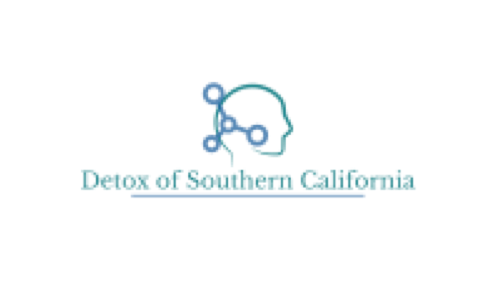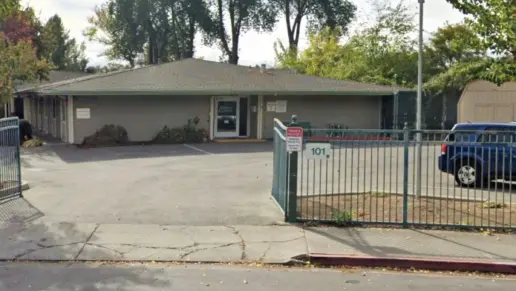About Pyramid Alternatives
StarVista (formerly Pyramid Alternative) is a drug rehab located in San Bruno, California for substance use disorder and alcohol use disorder and co-occurring mental and behavioral health disorders. StarVista provides detox, partial hospitalization (PHP), outpatient (OP), dual diagnosis treatment, case management, and aftercare programs for adults and teenagers. Specialized services are available for children, homeless/indigent persons, gender-specific treatment, and underserved communities. Selected services are available in Spanish and Tagalog. Telehealth is available for selected services.
StarVista’s detox program can service up to 4 clients who are withdrawing from chemical addictions and need overnight accommodations. Stays range from 3 to 7 days and include 24/7 monitoring, counseling, and a case management team. Clients who are under court order for DUI can also stay at a facility for 24 hours for assessment and evaluation.
For PHP, the Women’s Enrichment Center is available for women with alcohol and substance abuse disorders. These clients undergo two programs a day for 5 days per week. The program emphasizes emotional and mental wellness, relapse prevention, and life skills development.
In StarVista’s OP, clients receive a case management team. Services include counseling, emotional wellness training, relationship and communication building exercises, and family resources. Education and prevention strategies to prevent relapse are also available. Special counseling is available online for teenagers and young adults to promote mental wellness, or families with children 0 to 5 years of age, and are free of charge.
StarVista provides continual care and support for all alumni. The center maintains several hotlines for teenagers, adults, and those in crisis.
StarVista offers self-pay and financing options, with some programs free of charge. The center may be in-network with insurance providers such as Aetna, Beacon, BlueCross/BlueShield, Cigna, Humana, Kaiser Permanente, Magellan Health, and TRICARE. Please contact your insurance provider for specific details concerning out-of-network benefits.
Accepted Insurance
Other Forms of Payment
Private insurance refers to any kind of healthcare coverage that isn't from the state or federal government. This includes individual and family plans offered by an employer or purchased from the Insurance Marketplace. Every plan will have different requirements and out of pocket costs so be sure to get the full details before you start treatment.
Self-pay involves paying for treatment out of your own pocket. You can use savings or credit, get a personal loan, or receive help from family and friends to fund your treatment. If you don't have insurance or your insurance plan doesn't cover a specific program, self-pay can help ensure you still get the care you need.
Medicaid is a state based program that helps lower-income individuals and families pay for healthcare. Medicaid covers addiction treatment so those enrolled can use their coverage to pay for rehab. When a program accepts Medicaid the client often pays very little or nothing out of their own pocket.
Medicare is a federal program that provides health insurance for those 65 and older. It also serves people under 65 with chronic and disabling health challenges. To use Medicare for addiction treatment you need to find a program that accepts Medicare and is in network with your plan. Out of pocket costs and preauthorization requirements vary, so always check with your provider.
Addiction Treatments
Levels of Care
Treatments
The goal of treatment for alcoholism is abstinence. Those with poor social support, poor motivation, or psychiatric disorders tend to relapse within a few years of treatment. For these people, success is measured by longer periods of abstinence, reduced use of alcohol, better health, and improved social functioning. Recovery and Maintenance are usually based on 12 step programs and AA meetings.
Drug rehab in California teaches participants constructive ways to stay clean and sober. Treatment revolves around helping individuals stop using the substance they are addicted to and learn healthy habits to avoid relapse.
Many of those suffering from addiction also suffer from mental or emotional illnesses like schizophrenia, bipolar disorder, depression, or anxiety disorders. Rehab and other substance abuse facilities treating those with a dual diagnosis or co-occurring disorder administer psychiatric treatment to address the person's mental health issue in addition to drug and alcohol rehabilitation.
Opioid rehabs specialize in supporting those recovering from opioid addiction. They treat those suffering from addiction to illegal opioids like heroin, as well as prescription drugs like oxycodone. These centers typically combine both physical as well as mental and emotional support to help stop addiction. Physical support often includes medical detox and subsequent medical support (including medication), and mental support includes in-depth therapy to address the underlying causes of addiction.
Substance rehabs focus on helping individuals recover from substance abuse, including alcohol and drug addiction (both illegal and prescription drugs). They often include the opportunity to engage in both individual as well as group therapy.
Programs


Clinical Services
Group therapy is any therapeutic work that happens in a group (not one-on-one). There are a number of different group therapy modalities, including support groups, experiential therapy, psycho-education, and more. Group therapy involves treatment as well as processing interaction between group members.
Trauma therapy addresses traumatic incidents from a client's past that are likely affecting their present-day experience. Trauma is often one of the primary triggers and potential causes of addiction, and can stem from child sexual abuse, domestic violence, having a parent with a mental illness, losing one or both parents at a young age, teenage or adult sexual assault, or any number of other factors. The purpose of trauma therapy is to allow a patient to process trauma and move through and past it, with the help of trained and compassionate mental health professionals.
Contact Information
480 Manor Plaza
Pacifica, CA 94044







